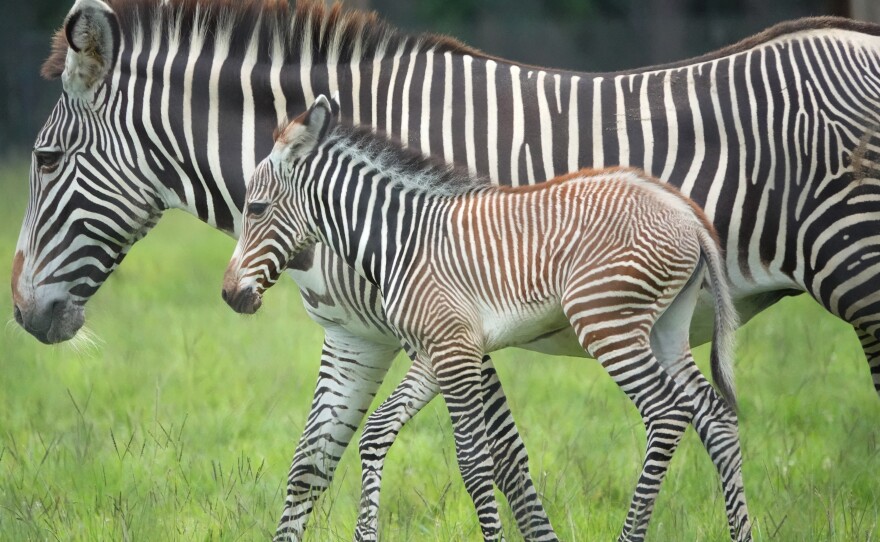Four Grevy’s zebras, the world’s largest and most endangered species of zebra, were recently born at White Oak Conservation in Yulee.
The four Grevy’s zebra foals (three males and one female) were born in June and July.
The species first arrived at White Oak, a 17,000 acre wildlife refuge in Northeast Florida owned by philanthropists Mark and Kimbra Walter, in 1977. Since 1980, 96 Grevy’s zebras have been born at White Oak.

“The Grevy’s zebra is near extinction because of severe habitat loss,” Mark Walter said. “We simply must preserve more wild spaces around the world. Until then, we’ll work to build a backup population of this zebra to hedge against its extinction.”

The new foals at White Oak are part of what’s known as an “assurance population,” which serves as a kind of a backup population in case the species, which in this case already has dangerously low numbers, becomes extinct in the wild.
According to the International Union for Conservation of Nature Red List, there are only about 2,000 adult Grevy’s zebra adults living in the wild, down from a population of around 15,000 in the 1970s.
The four foals at White Oak are being raised by their mothers, who they’ll stick close to until a younger sibling is born.
“Grevy’s zebras form social groups and live in herds at White Oak, as they would in the wild,” said Brandon Speeg, White Oak’s director of conservation. “When the young males mature, they’ll go to live with bachelor herds.”
Grevy’s zebras typically live in very dry environments and can survive up to five days with no water, but increasing competition with humans and livestock for grazing and for water is threatening their survival.
“As the human footprint expands, we are pushing more species to the brink,” said Michelle Gadd, who leads the Walters’ global conservation efforts. “We are working not just to save individual animals in human care, but simultaneously to restore and preserve habitat in the wild.”
Brendan Rivers can be reached at brivers@wjct.org, 904-358-6396 or on Twitter at @BrendanRivers.








